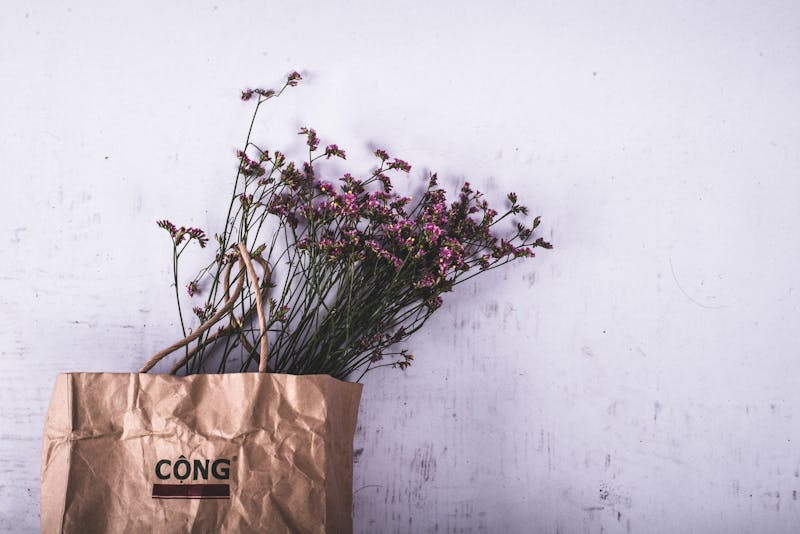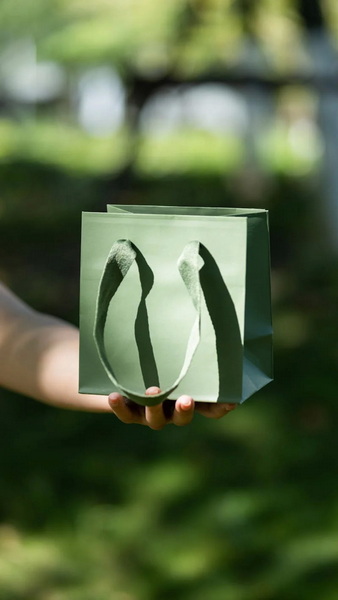Content Menu
● Types of Paper Bags
● Materials Needed
● Step-by-Step Guide to Making a Flat Paper Bag
>> Step 1: Prepare Your Paper
>> Step 2: Fold the Paper
>> Step 3: Create the Sides
>> Step 4: Assemble the Bag
>> Step 5: Finish the Bag
● Customizing Your Paper Bag
● Making Gusseted Paper Bags
>> Step 1: Cut Your Paper
>> Step 2: Fold and Create Gussets
>> Step 3: Assemble Your Bag
>> Step 4: Finish with Handles
● Tips for Success
● Environmental Benefits of Using Paper Bags
● Conclusion
● Related Questions
>> 1. What types of paper can I use for making bags?
>> 2. Can I use printed wrapping paper for gift bags?
>> 3. How do I reinforce my paper bag?
>> 4. Are homemade paper bags durable?
>> 5. Can I wash my paper bag?
Creating a bag from paper is not only a fun and creative project but also an environmentally friendly way to repurpose materials. Whether you need a gift bag, a shopping bag, or just want to explore your crafting skills, making a paper bag can be an enjoyable experience. This article will guide you through the steps to make different types of paper bags, provide tips for customization, and discuss the benefits of using paper bags over plastic ones.

Types of Paper Bags
Before diving into the crafting process, it's essential to understand the various types of paper bags you can create. Here are some popular options:
- Flat Paper Bags: These are simple bags that can be used for gifts or small items. They are easy to make and require minimal materials.
- Gusseted Paper Bags: These bags have folds on the sides that allow them to expand, making them suitable for carrying larger items.
- Gift Bags: These are decorative bags designed specifically for gifts. They often come with handles and can be customized with colors and designs.
- Shopping Bags: Larger and sturdier than gift bags, shopping bags are designed for carrying groceries or other items.
- Origami Paper Bags: These bags are made using origami techniques, resulting in unique and artistic designs.
Materials Needed
To make a paper bag, you will need the following materials:
- Paper (kraft paper, wrapping paper, or recycled paper)
- Scissors
- Ruler
- Pencil
- Glue or double-sided tape
- Decorative items (optional), such as stickers, markers, or ribbons
Step-by-Step Guide to Making a Flat Paper Bag
Step 1: Prepare Your Paper
Start by selecting the type of paper you want to use. For a flat bag, kraft paper works well due to its durability. Cut a piece of paper into a rectangle. A common size for a small flat bag is 12 inches by 8 inches.
Step 2: Fold the Paper
With the rectangle positioned horizontally, fold the bottom edge up about 3 inches. This will create the base of your bag. Crease the fold well to ensure it holds its shape.
Step 3: Create the Sides
Next, fold the left and right edges towards the center line of the bag. Each side should be folded in about 1 inch. This will create flaps that will form the sides of your bag.
Step 4: Assemble the Bag
Apply glue or double-sided tape along the edges of the side flaps. Press them down firmly against the base of the bag to secure them in place. Make sure everything is aligned properly for a neat finish.
Step 5: Finish the Bag
Once the sides are glued down, fold down the top edge of your bag about 1 inch to create a finished look. You can also punch holes in this area and add ribbon or string for handles if desired.

Customizing Your Paper Bag
One of the best parts of making your own paper bag is customizing it to fit your style or occasion. Here are some ideas for personalization:
- Decorate with Paint: Use acrylic paint to add designs or patterns to your bag. You can create stripes, polka dots, or even intricate illustrations.
- Add Stickers: Stickers are an easy way to add flair to your bag. Choose stickers that match your theme or occasion.
- Use Stamps: Create unique designs using rubber stamps and ink pads. This method allows for more detailed artwork without needing advanced drawing skills.
- Incorporate Text: Use markers or paint pens to write messages on your bag. This is especially useful for gift bags where you can include a personal note.
Making Gusseted Paper Bags
Gusseted bags provide more space than flat bags and are perfect for carrying bulkier items. Here's how to make one:
Step 1: Cut Your Paper
Start with a larger piece of paper; a size of 15 inches by 12 inches works well for this type of bag.
Step 2: Fold and Create Gussets
Fold the paper in half lengthwise (15 inches side) and crease it well. Open it back up and fold each side towards the center crease about 2 inches. This creates gussets that allow your bag to expand.
Step 3: Assemble Your Bag
Fold up the bottom edge about 3 inches and glue down the gussets on each side. Ensure that they are aligned properly so that your bag stands upright.
Step 4: Finish with Handles
Similar to flat bags, you can punch holes at the top edge and add handles made from ribbon or sturdy string.
Tips for Success
To ensure your paper bag-making experience is enjoyable and successful, consider these tips:
- Choose Quality Paper: The sturdiness of your bag depends on the quality of paper used. Thicker papers hold their shape better than thinner ones.
- Measure Carefully: Accurate measurements lead to better results. Use a ruler and pencil for precise cutting and folding.
- Experiment with Sizes: Don't hesitate to try different sizes for various purposes. Adjusting dimensions can yield unique results tailored to specific needs.
- Practice Makes Perfect: If you're new to crafting with paper, practice making several bags before attempting more complex designs.
Environmental Benefits of Using Paper Bags
Using paper bags instead of plastic has numerous environmental benefits:
- Biodegradable: Paper bags decompose naturally over time, reducing landfill waste compared to plastic bags that take hundreds of years to break down.
- Recyclable: Most paper bags can be recycled after use, contributing to a circular economy where materials are reused rather than discarded.
- Sustainable Resources: Many paper products are made from renewable resources like trees that can be replanted and harvested sustainably.
Conclusion
Making a bag from paper is not only an enjoyable craft but also an excellent way to contribute positively to our environment by reducing plastic waste. With just a few materials and some creativity, you can create beautiful and functional bags suitable for various occasions. Whether you're crafting simple flat bags or more complex gusseted designs, this project allows for endless customization possibilities while promoting sustainability.
By engaging in this craft, you not only develop your skills but also inspire others to consider eco-friendly alternatives in their daily lives. So gather your materials and start creating unique paper bags today!
Related Questions
1. What types of paper can I use for making bags?
You can use various types of paper such as kraft paper, wrapping paper, recycled newspaper, or even cardstock depending on how sturdy you want your bag to be.
2. Can I use printed wrapping paper for gift bags?
Yes! Printed wrapping paper adds a decorative touch and can make beautiful gift bags when crafted properly.
3. How do I reinforce my paper bag?
To reinforce your paper bag, consider using thicker papers or adding an extra layer at the base where stress is greatest during use.
4. Are homemade paper bags durable?
Homemade paper bags can be quite durable if made from quality materials and constructed properly with strong folds and glue.
5. Can I wash my paper bag?
Paper bags are not designed for washing; however, you can spot clean them if they get dirty but avoid soaking them in water as they may disintegrate.































